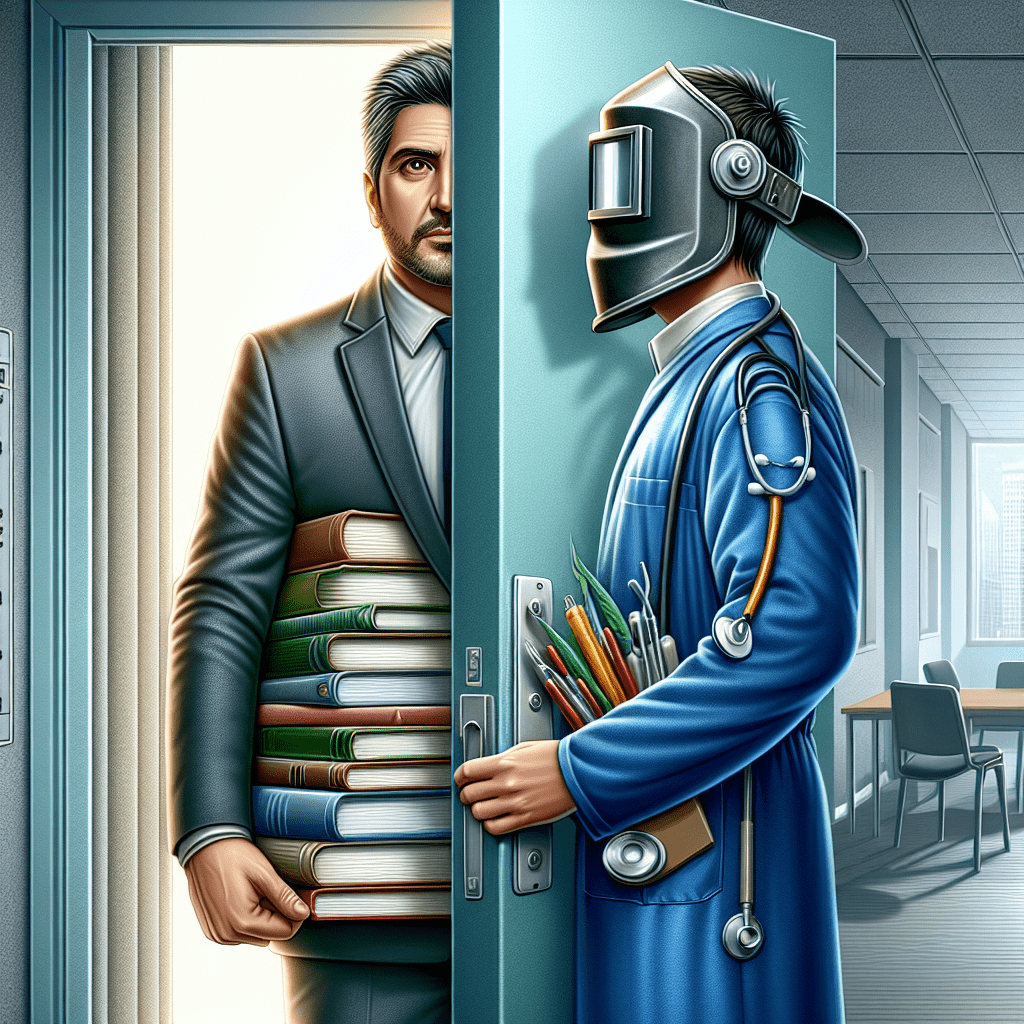
Rethinking Expertise: Why Experience Should Matter More Than Degrees

Is a Degree the Only Measure of Expertise? Absolutely Not!
Let me start with a bold statement: relying solely on degrees to gauge expertise is as outdated as using a floppy disk to save your work. It might have been relevant once, but today, we need to rethink how we measure competence in the workplace.
Recently, I stumbled across a situation that perfectly highlights this absurdity. A dedicated professional, armed with over 20 years of experience in managing quality in apprenticeships, applied to become an Ofsted Inspector. But guess what? He was turned down because he didn’t possess a degree. Yes, you read that right—a wealth of relevant qualifications and practical expertise dismissed simply because of a lack of a piece of paper from decades ago!
Experience: The Real Gold Standard
This raises some critical reflections. First off, experience absolutely matters. Just think about it. Two decades spent honing one’s craft, learning the ins and outs of quality management, and developing a keen insight into what works and what doesn’t in real-world situations is invaluable. Yet, in this case, it was overshadowed by an outdated qualification.
Is it just me, or does this seem like madness? Why should a piece of paper hold more weight than years of hard-earned knowledge? In today’s world, we should be valuing experience just as much, if not more than, academic credentials.
The Changing Landscape of Education and Training
Now let’s talk about how the landscape of education and training has changed dramatically over the years. With advancements in technology and the rapid evolution of skills needed in the workforce, shouldn’t our measures of competency evolve too? The skills that employers crave aren’t just learned in lecture halls. They’re nurtured in workplaces, through apprenticeships, and via hands-on experience.
Isn’t it time for a paradigm shift? A system that acknowledges and rewards the wealth of knowledge gained through years in the field could create a more dynamic and capable workforce.
Prioritising Skills Over Rigid Requirements
Additionally, it’s time we start focusing on skills rather than those rigid entry requirements. The world is changing fast, and the skills needed in various industries are shifting to meet new demands. A degree does not always equate to real-world competence.
Sure, I understand the rationale behind having certain qualifications for specific roles. But when it comes down to it, shouldn’t the ability to perform the job effectively outweigh a diploma? This is especially true in roles that require a deep understanding of practical applications rather than just theoretical knowledge.
At City Skills, we get it. We believe in a system that measures true capability, not just academic accolades. A skilled individual, regardless of their educational background, can bring immense value to an organisation and ensure quality and competency in their role.
How Do We Push for Change?
Now, onto the crux. How can we advocate for a system that values experience and skill equally with academic credentials? It starts with conversations like this. We must challenge outdated notions and push for policies that recognise diverse pathways to expertise.
I think we’ve all encountered people who are exceptional at their jobs but lack traditional qualifications. Think of those with a knack for solving problems or those who can manage a team flawlessly—all without a shiny degree hanging on their wall. They deserve recognition for their skills and contributions.
My Personal Takeaway
On a personal note, I once encountered a similar paradox in my career. I’ve always believed that hands-on experience is irreplaceable and that passion can drive performance just as much as education. I’ve met brilliant minds who never finished university, yet they inspire teams and lead projects that impress even the highest levels of management.
Let’s start the conversation about valuing what really matters. Education and qualifications are essential, but they should not be the yardstick for judging someone’s capability in today’s diverse workforce.
Your Thoughts?
So, what do you think? Are we overly reliant on degrees when it comes to measuring expertise, or do you see value in both experience and education? I’d love to hear your thoughts. Join the conversation and let’s push for a system that truly values skills and experience. It’s time for a change!



